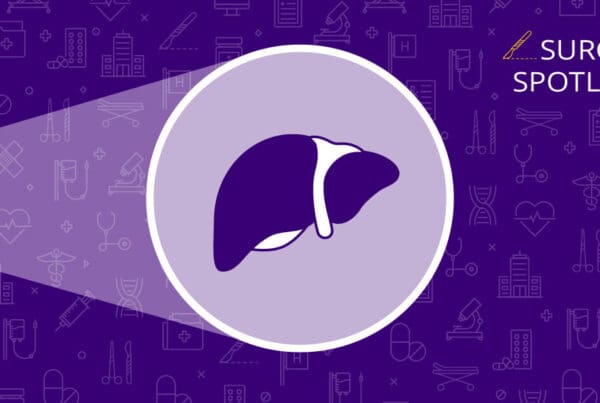Highlights | Addressing a statewide need
- Many areas of Washington are federally designated as mental health care shortage areas.
- A new job type, behavioral health support specialist, has been created to address these shortages.
- These specialists will be trained at the bachelor’s degree level and provide care for patients with mild to moderate mental health concerns.
- Colleges and universities throughout the state have already started offering training programs.
- Part of the training involves using an intelligent tutoring system (AI) developed here at UW.
It’s not surprising that there is a huge nationwide shortage of mental health care. In Washington state alone there are 193 federally-designated mental health professional shortage areas, where a certain geographic location, health clinic or facility or population group does not have access to enough mental health care specialists.
This is a serious problem, especially because post-pandemic mental illness levels have not yet improved to pre-pandemic levels. Estimates suggest more than 30% of the adult US population deals with a mental health issue.
Training more psychologists, psychiatrists and mental health professionals is important but can’t be done quickly enough to address this enormous need. So experts at UW Medicine had an idea: Why not create a new mental health care role that requires less training but can still serve the people who need help?
Meet the job: Behavioral health support specialist
The new role, behavioral health support specialist (BHSS), is achieved through a training program students can undergo as part of a bachelor’s degree or as a continuing education certification. These options allow for flexibility and help make the training more accessible to professionals who already have degrees in related fields, such as social work, psychology, behavioral healthcare or human services.
“This role provides an opportunity to work with really talented individuals who are at the bachelor’s level and empower them to work with people who are struggling but don’t have access to care,” says Bill O’Connell, EdD, director of the Behavioral Health Support Specialist Clinical Training Program in the Department of Psychiatry and Behavioral Sciences. “This role can meet behavioral health needs across different settings. Another unique aspect of the role is that it can be a career ladder into a number of professions, including psychology, mental health counseling and social work.”
Anna Ratzliff, MD, PhD, a psychiatrist and professor of Psychiatry and Behavioral Sciences, helped create the clinical training program as part of the Behavioral Health Workforce Expansion and Lifelong Learning (BWELL) program that she leads in the Department of Psychiatry and Behavioral Sciences.
“Some patients have less intense needs and could be served by a workforce with more focused training. The new role involves high-quality training in evidence-based treatments to complement other types of care. It does not replace master’s or doctorate level providers but helps address our workforce needs and expands the services we can offer,” says Ratzliff.
Behavioral health support specialists will not diagnose mental health conditions but will be able to provide care to patients who have mild to moderate mental health issues, such as anxiety or depression. People who have severe mental health issues such as schizophrenia or bipolar disorder may be supported by someone in the role with things like a referral and following a treatment plan from a provider who is licensed to diagnose and assess patients with conditions like this.
The services they will provide are part of a stepped care model, which first involves screening for common mental health conditions and then providing an accessible, basic level of evidence-based care to see if it meets the patient’s needs. If they require more intensive care, the behavioral health support specialist will work with their supervisor and colleagues to refer the patient to someone who can help them.
Over a limited number of sessions, the behavioral health support specialist would work with a patient to help them get to a point where they have built solid coping skills, improved day-to-day functioning and feel confident to handle their mental health on their own.
What it takes to create a new type of care specialist
The training program was inspired by a care model from the UK and is funded by Ballmer Group. The new role received legislative approval when Gov. Jay Inslee signed it into law on May 4, 2023, after lobbying efforts led by Ian Goodhew, senior director of External Affairs at UW Medicine. The first behavioral health support specialists will be eligible for credentialing starting in early 2025.
Along with a sample job description, Ratzliff, O’Connell and team have developed a curriculum that schools or certificate programs creating a behavioral health specialist degree can use as a guide.
“We see our role as being a catalyst. We’re trying to create a library of materials that are off the shelf so any four-year institution in Washington state could take that content and integrate that into their curriculum,” Ratzliff says.
Five institutions are currently partnered with UW Medicine on behavioral health specialist-related training programs:
- UW Tacoma’s BA program in Social Welfare
- Eastern Washington University’s BHSS certificate program
- Lake Washington Institute of Technology’s Behavioral and Social Services programs
- Centralia College’s Behavioral Healthcare BAS-BH program
- Spokane Falls Community College’s Behavioral Health bachelor’s and certificate programs
“One aim of the project has been to address needs in areas that have been under-resourced in behavioral healthcare. Our partners are in areas that are federally designated as being workforce shortage areas for this type of care. These programs will help serve those communities initially, plus we have other programs in the works across the state,” O’Connell says.
It also provides an opportunity for people to return to practice in their own communities, Ratzliff says, which will help increase equity of mental health care delivery across the state.
Taking advantage of AI training capabilities
A key part of curriculum development was making sure professors are supported.
To train someone who will be treating patients but not delivering advanced care, Patricia Areán, a former professor of Psychiatry and Behavioral Sciences at the UW School of Medicine, who is now director of the National Institute of Mental Health’s Division of Services and Intervention Research, found an approach that was just right: Use artificial intelligence (AI).
She and her colleagues partnered with the team at the UW Center for Game Science, directed by Zoran Popović, PhD, who developed an intelligent tutoring system (ITS) that would supplement what students learn in class and guide them as they learn the BHSS competencies.
ITS is not a substitute for an instructor but is a self-paced, interactive, adaptive algorithm that presents students with information, theoretical scenarios and exercises about how to provide behavioral interventions such as cognitive behavioral therapy to patients. Exercises start off easier and get progressively harder; if a student is struggling, the AI recognizes that and keeps giving them similar problems until the student can solve them.
“The innovative part of the curriculum is taking evidence-based behavioral practices that were only in the hands of master’s and doctoral folks and streamlining them so a bachelor-prepared person can learn to do them safely and effectively within their scope of practice,” says Patrick Raue, PhD, a professor of Psychiatry and Behavioral Sciences and a clinical psychologist at UW Medical Center – Roosevelt who helped develop the AI.
Raue, Areán and colleagues have fine-tuned the algorithm based on feedback and real-time data from students using it. And, for safety and quality assurance, they only allow the algorithm to pull from data sources they supply it with.
Between the programs already in existence and the upcoming work the team is doing, the future is bright for students who will train as behavioral health support specialists and for the much-needed services they will provide their communities.
“I’m personally really excited because I think a lot of people graduate from undergrad and they can’t go right into seeing patients or addressing workforce needs. This offers a pathway for them to be able to do that,” Ratzliff says.



